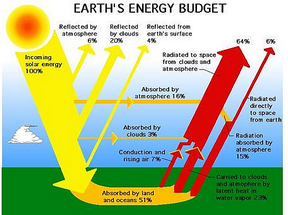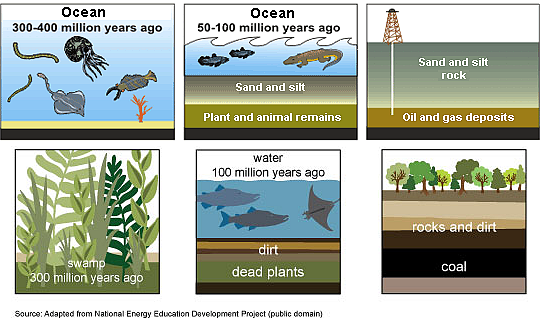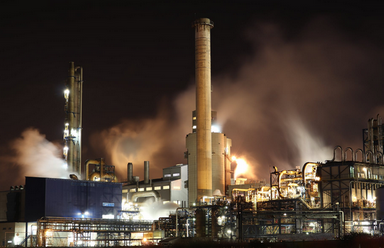The energy we need to support population increase is all around us. It comes first from above as the Sun provides the planet with sunlight and warmth, supporting the first forms of life which were plants. Plants convert sunlight into energy as sugars and other complex carbohydrates through photosynthesis. Plant life in the oceans and plant life on land, supported further development of life in single cell all the way to our complex human progress we are today. It has taken millions of years for the earth to reach our current potential.

Because the sun is once removed from the earth, development of life on earth has increased by efficiency greater than 100%. We get many times the heat and light from the sun than we need.
The Energy Budge image shows sunlight filtered through our atmosphere, limiting the types of light our planet requires for optimal support and survival.
Prehistoric carbon became stored below ground over time which forms under massive pressure into energy dense materials like coal, crude oil and volatile gasses.

In the last 200 years plus, we learned to refine these materials to create energy dense fuels.
Unfortunately we failed to recognize the negative side effects of burning these fuels by the ton, creating the emissions we battle today for Co2 and others.
That's not how we started out however. We did what we could with what we had available... Trees mostly. Burning wood was our mainstay for heat, light and cooking for centuries.
This worked for us because the sugars and carbohydrates in plants contain significant amounts of carbon as well as hydrogen as part of the alcohols and fibrous materials plants are made from. Plant materials are not as energy dense as crude oil or natural gas, but they are fuel all the same. We get substantial alcohol from refining Corn for one example.
These plant and decaying animal remains are the source of what eventually formed the oil deposits we use now, forming over millions of years time. Early discovery of coal as a fuel source lead the way toward finding more dense stores of fuel and began the causes of excess Co2 release to the atmosphere..
One of the important values of burning wood, was simply that the carbon in plants is being removed from the atmosphere by the plants during photosynthesis taking up Co2 and expelling back to us clean Oxygen. Each time a tree is burned it's returning a portion of Co2 as a continuous cycle nature has built for us. This doesn't increase atmospheric Co2... The earth is recycling it by tons per hour and replenishing oxygen we need to breath for survival.

In roughly two centuries time, we went from living in harmony with nature, to extracting toxic stores from below ground in order to gain the benefit of higher energy density. These fuels are more easily converted to burnable gases, liquid gasoline, diesel and many forms of energy. This gave way to the automobile becoming a commodity for transportation en masse. Unfortunately the Co2 from this process create toxic emissions that are millions of years old, previously stored safely below ground.
The refinement process was key to increasing the energy density from crude oil or dirty gas into a much more dense and transportable fuel, a highly complex series of chemical transitions emitting many secondary toxic byproducts.
One of those refined products has been evolving more than 50 years giving us high production rates of many plastics, yet another fundamental need that has gone astray with less than 10% of plastic being recycled today. This is one of the most destructive type of waste as it makes it into the ocean, creating severe side effect at the bottom of the food chain. The effect echoes it's way up through the entire food chain and eventually back to us in processed sea food.
So, where is the energy we need? Frankly it's the sun that holds this answer and our first resource of renewable and sustainable, clean energy resource is NOT below ground, but above ground, growing all around us. The missing link has been a lack of "refinement" just as we have done for fossil fuels. We'll see later on why solar energy by way of electric solar panels isn't a solution and likely won't be for many years to come. That leaves us with plants that grow above ground, utilized in continuous refinement to produce clean energy, on demand, full time.
In the mean time, we have unfortunately removed some three Trillion trees (approximately half of all trees) from the surface of the earth to date, while our fossil fuel resources are due to run out in less than 50 years. These causes are not only contributing greater concern, but are entirely different topics under the "Science" heading on the site.
Just in our early discussion here, we can see the potential for waste is what is leading the inefficiency we're suffering for a price of fossil fuel depletion. The energy we need is in our own hands but clearly a manner of how we handle it as we learn to undue the impact we've had in such a short time.





